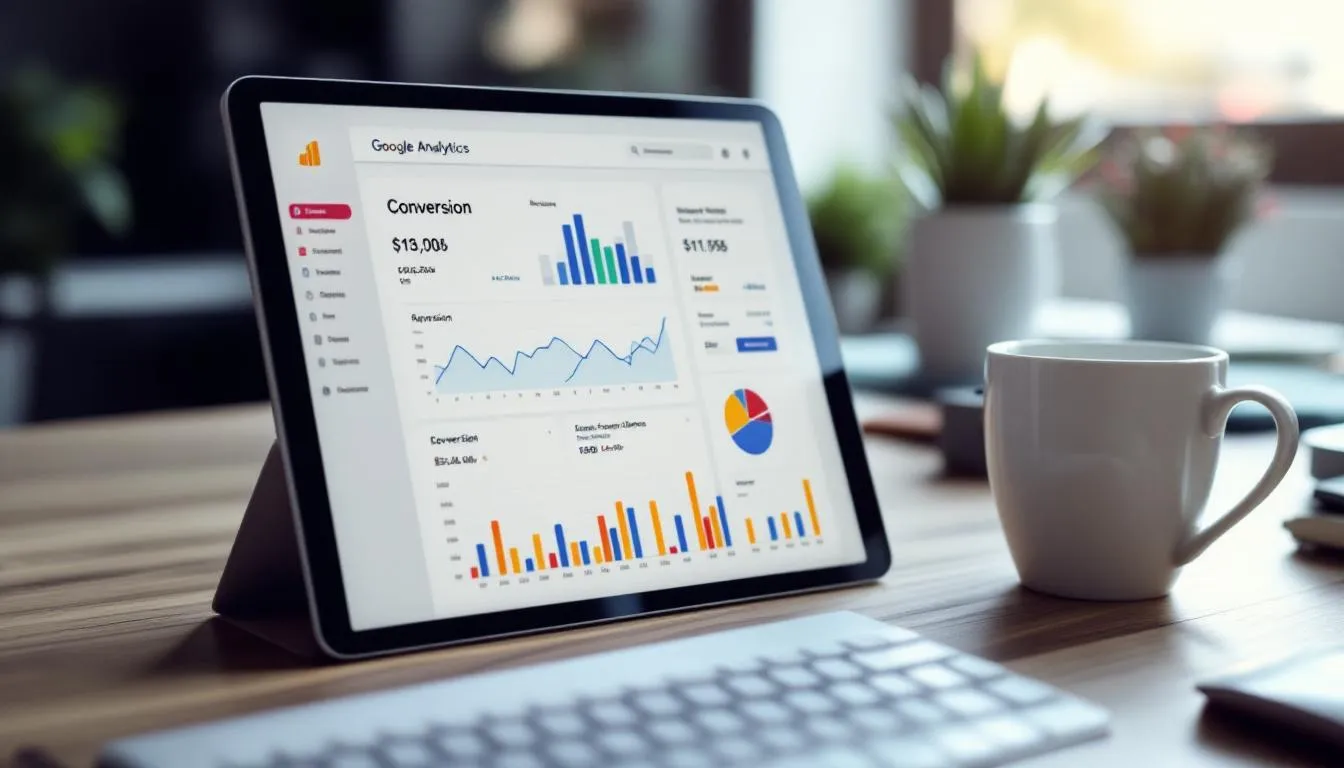Introduction to Digital Transformation
Digital transformation is reshaping how businesses operate. It is more than adopting new tools. It is about rethinking operations, customer service, and growth strategies through digital systems.
With the right platforms, SMEs can cut errors, streamline processes, and improve customer experience. Tools for invoicing, payments, and stock management are now affordable and easy to adopt. Data and analytics also play a key role. By turning insights into action, businesses unlock new opportunities and stay ahead in a competitive market.
For Brunei SMEs, digital transformation is no longer optional. It is the foundation for efficiency, resilience, and sustainable growth.
When Marketing Isn’t Enough
Hakimah, a boutique store owner in Kiulap, spent months perfecting her marketing. Her Instagram was filled with daily posts, giveaways, and boosted ads. Followers increased quickly and likes poured in. However, the use of marketing tools alone, without investing in robust infrastructure, left critical gaps in his operations.
But behind the social buzz, customers faced late deliveries, untracked stock, and manual payment delays. The shop’s systems were unable to support the growth marketing had promised. This could be a major issue for businesses that focus only on marketing and neglect the systems needed to deliver on their promises.
Hakimah’s challenge is common in Brunei. Too often, businesses see digital as a tool for promotion, not as the backbone that makes sales possible. Marketing creates attention, but infrastructure converts and sustains it.
Marketing is visible. Infrastructure is not. Yet it is infrastructure that carries a business through scaling, crises, and long-term competition.
Why Brunei SMEs Fall Into the Marketing Trap
Social Media as the Default Strategy
Social media feels accessible and low-cost. A Facebook page is free, posting on Instagram is simple, and paid boosts look affordable. It is no wonder that many SMEs believe digital marketing equals digital transformation.
The Illusion of Success
Likes and follows create the impression of growth. But without systems to capture and convert that attention, success remains shallow. Businesses celebrate visibility but neglect operations that generate revenue.
The Cost of Inefficiency in a Small Market
Brunei’s small population magnifies inefficiency. Every lost order or delayed delivery cuts deeply. Unlike larger markets, mistakes are harder to absorb. Weak systems quietly erode profitability.
Digital as a Cost Instead of an Investment
Owners often see digital as a marketing expense rather than a long-term business investment. This narrow mindset limits transformation and stops SMEs from building resilience for future growth.
Key Takeaways for Brunei SMEs
- Marketing is not infrastructure – Social media creates visibility, but without systems behind it, the energy spent rarely sustains revenue. Businesses must separate attention-getting activities from operational foundations.
- Digital foundations unlock efficiency – Solutions for inventory tracking, payment systems, and automated workflows prevent wasted hours and costly mistakes. In Brunei’s smaller market, efficiency is not optional.
- Infrastructure supports scalability – A strong system allows businesses to handle growth without chaos. The tools that feel invisible today will decide whether a business can expand tomorrow.
- Long-term resilience depends on systems – Marketing might bring customers once, but infrastructure keeps them coming back. Loyalty programs, CRM systems, and seamless payments create trust and repeat purchases.
- Reframing digital as an investment – Every dollar spent on systems multiplies returns by preventing leakage, improving customer experience, and ensuring operations keep pace with growth.
Understanding the Real Gaps in Brunei’s Business Landscape
Over-Reliance on Visibility Alone – F&B outlets post beautiful menus online, yet lose orders through poor checkout systems. Boutiques run giveaways but fail to capture data for future sales. Attention without conversion is wasted energy.
Small Market, Big Impact – A single bad experience travels fast in a close-knit community. Without infrastructure, businesses risk damaging trust and reputation that takes years to build.
Payment and Delivery Friction – Many customers prefer local banks, QR payments, or cash on delivery. Without these options, conversions drop. Weak logistics create further frustration, undoing the impact of marketing campaigns.
Lack of Measurement Beyond Marketing – Large firms track ROI, lifetime value, and repeat purchases. Many SMEs still count likes and views. Without meaningful metrics, businesses cannot see if they are truly growing.
Benefits of Digital Infrastructure
Cost Reduction and Efficiency Gains – Digital systems cut manual work, reduce errors, and save money. For SMEs with slim margins, every saved dollar matters.
Smarter Decision-Making – Data from sales systems and analytics helps owners understand what works, guiding better choices on promotions, stock, and pricing.
Agility in a Changing Market – Infrastructure allows quick adaptation. Whether it is responding to a spike in demand or adjusting to supply chain shifts, businesses with systems move faster.
Improved Customer Experience – Smooth payments, fast deliveries, and consistent service build loyalty. In Brunei’s relationship-driven market, customer experience is everything.
Importance of Local Search and AI
In the digital transformation journey for businesses, the importance of local search and AI cannot be overlooked. With the majority of customers turning to search engines to find services and products, it is essential for businesses to optimise their online presence for local search. This means claiming and updating your Google Business Profile, using location-based keywords, and ensuring your business information is accurate and up to date.
AI-powered tools, such as chatbots and virtual assistants, are also becoming increasingly valuable in the Brunei market. These digital solutions can handle customer inquiries around the clock, provide instant responses, and help streamline the customer service process. By integrating AI and local search strategies, businesses can enhance their visibility, improve customer engagement, and drive more qualified leads to their digital platforms.
For SMEs, leveraging these tools is a practical way to stand out in a competitive landscape. Digital transformation is not just about adopting new technology—it’s about using the correct tools to connect with local customers and deliver services that meet their expectations.
Building Digital Infrastructure That Works
Invest in Systems, Not Just Campaigns:
The first step is shifting the mindset. When building digital infrastructure, businesses need to identify what to do first—such as choosing which systems to implement and making to-do lists for prioritising actions. Digital spend should not be seen only as a marketing budget. Tools like POS systems, CRM platforms, and automated invoicing are infrastructure investments that reduce cost and increase revenue long-term. It is crucial to implement these systems early to maximise long-term benefits.
Prioritise Local Integration:
Brunei businesses need infrastructure that works with local realities. That means offering trusted local payment methods, setting up WhatsApp ordering integrations, or building delivery systems suited to the local geography.
Adopt Scalable Tools Early:
Many SMEs wait until they are overwhelmed before investing in systems. By then, inefficiency has already cost them money and customers. Starting with scalable tools early means processes won’t collapse when demand rises.
Link Marketing to Operations:
Marketing only works if operations can keep up. An F&B outlet with strong promotions but weak delivery capacity risks backlash instead of loyalty. Systems that integrate orders, payments, and fulfilment ensure that marketing leads translate into satisfied customers.
Evaluating Digital Tools
Choosing the right digital tools is a crucial part of the digital transformation process for any business. With a wide array of solutions for everything from payments to inventory management, businesses need to be strategic in their selection. Start by clearly defining your business goals and identifying the specific challenges you want to address. This will help you focus on the most relevant tools for your needs.
Next, assess your current digital infrastructure to see where the biggest gaps are. Research potential solutions for those gaps, considering factors such as cost, scalability, and how well the tool integrates with your existing systems. It’s also wise to seek feedback from other businesses, read user reviews, and consult with digital transformation experts to get a well-rounded view of each option.
By taking a structured approach to evaluating digital tools, businesses can avoid costly mistakes and ensure that every investment supports their long-term transformation strategy. The right tools can make a significant difference in efficiency, customer satisfaction, and overall business growth.
Efficiency and Productivity through Digital Transformation
Digital transformation is a powerful driver of efficiency and productivity for businesses in Brunei. By automating routine tasks and streamlining workflows, companies can minimise errors, save time, and focus on what matters most—serving their customers.
The use of digital tools and data analytics allows businesses to make informed decisions, reducing risks and improving outcomes. Enhanced communication and collaboration, both within teams and with customers, lead to better service and stronger relationships.
In Brunei, organisations such as Unified National Networks (UNN) are leading the way by providing digital solutions and telecommunications services that support the country’s economic development. For businesses looking to grow, digital transformation is not just an option—it’s a necessity for achieving efficiency, productivity, and long-term success.
Real-World Success: A Brunei Retailer’s Transformation
A retailer in Kiulap once had strong Instagram visibility but constant operational issues. Orders were late, stock counts were wrong, and payment instructions confused customers.
The owners invested in digital infrastructure. A POS system tracked stock in real time, QR codes made it easy to pay, and WhatsApp made it easy to confirm orders automatically.
In three months:
- Stock errors dropped by 70%.
- Customer complaints fell sharply.
- Revenue rose by 25%.
Marketing had not changed much. What changed was the infrastructure that supported every sale. Customers no longer saw just a brand online; they experienced a seamless business end-to-end.
Building Your Measurement Framework
If businesses want to treat digital as infrastructure, they need a framework to measure its impact. Tracking marketing impressions is not enough. Metrics should include:
- Order completion rates (how many enquiries turn into sales)
- Average processing time for transactions
- Repeat customer percentage
- Revenue per employee hour (to measure efficiency)
These metrics are based on data collected from digital systems. These numbers reveal whether systems are working as intended. Without them, investments in digital tools risk becoming underused add-ons.
Common Mistakes to Avoid
- Treating Digital as a Quick Fix – Flashy websites or apps without integration waste money. Systems must connect to operations to deliver results.
- Delaying Infrastructure Investment – Waiting until “the business grows” often means growth never arrives. Infrastructure enables growth—it doesn’t follow it.
- Assuming Systems Are Too Expensive – Affordable cloud POS and CRM tools cost less than monthly ad campaigns. The ROI is faster, too.
- Separating Marketing from Operations – Marketing brings attention, but operations keep it. If the two are not connected, customers are lost.
Getting Started: Infrastructure Activation Timeline
Week 1: Current Systems Audit
List all the processes currently done manually — inventory, payments, delivery, and customer data. Identify the biggest inefficiencies.
Week 2: Select Core Tools
Choose one or two systems that solve the biggest problems. For most SMEs, this is a POS system or a CRM platform.
Week 3: Integration and Training
Set up tools and train staff. Ensure the system is integrated with existing workflows, such as ordering, invoicing, or delivery.
Week 4: Measurement and Adjustment
Track impact using order completion rates, customer satisfaction, and time saved. Adjust processes to ensure the system delivers maximum benefit.
FAQ
- Do I need to abandon social media marketing?
No. Marketing remains important, but it must be linked to systems that capture and convert interest. - Are digital tools too costly for small businesses in Brunei?
Not necessarily. Many cloud-based solutions are affordable and pay for themselves by reducing inefficiencies and preventing errors. - How do I know which tools to start with?
Focus on the bottlenecks in your current operations. If payments are slow, start with a payment gateway. If stockouts are common, begin with POS or inventory systems. - Can I just use spreadsheets?
Spreadsheets are a start, but they quickly break down at scale. Purpose-built tools are designed to handle growth and save time. - What if my staff are not tech-savvy?
Choose user-friendly tools and provide simple training. Most modern SME tools are built to be intuitive and require minimal technical knowledge. - If your business is struggling to keep up with orders or customer inquiries, what should you do?
Consider adopting automation tools or working with a service provider to streamline your processes and improve response times.
Future of Digital Infrastructure
Brunei’s digital future will be driven by technologies like 5G, cloud computing, and the Internet of Things. These innovations will deliver faster, more secure connectivity to meet rising demand for digital services and data-driven decisions.
To stay competitive, businesses must invest in infrastructure that is robust, flexible, and secure. High-speed networks, modern data centres, and strong cybersecurity will be essential.
Preparing now ensures SMEs can seize new opportunities, support innovative services, and contribute to Brunei’s transformation into a smart nation.
Building Strong Foundations
Brunei businesses can no longer afford to treat digital as just marketing. Visibility matters, but infrastructure is what keeps customers loyal and revenue steady.
At Digital Sage, we help SMEs build digital systems that integrate marketing with operations. From POS to automation workflows, we design solutions that reduce costs, save time, and build resilience.
If you are ready to move from campaigns to foundations, reach out to Digital Sage. Let’s build digital infrastructure that supports growth today and in the future.




